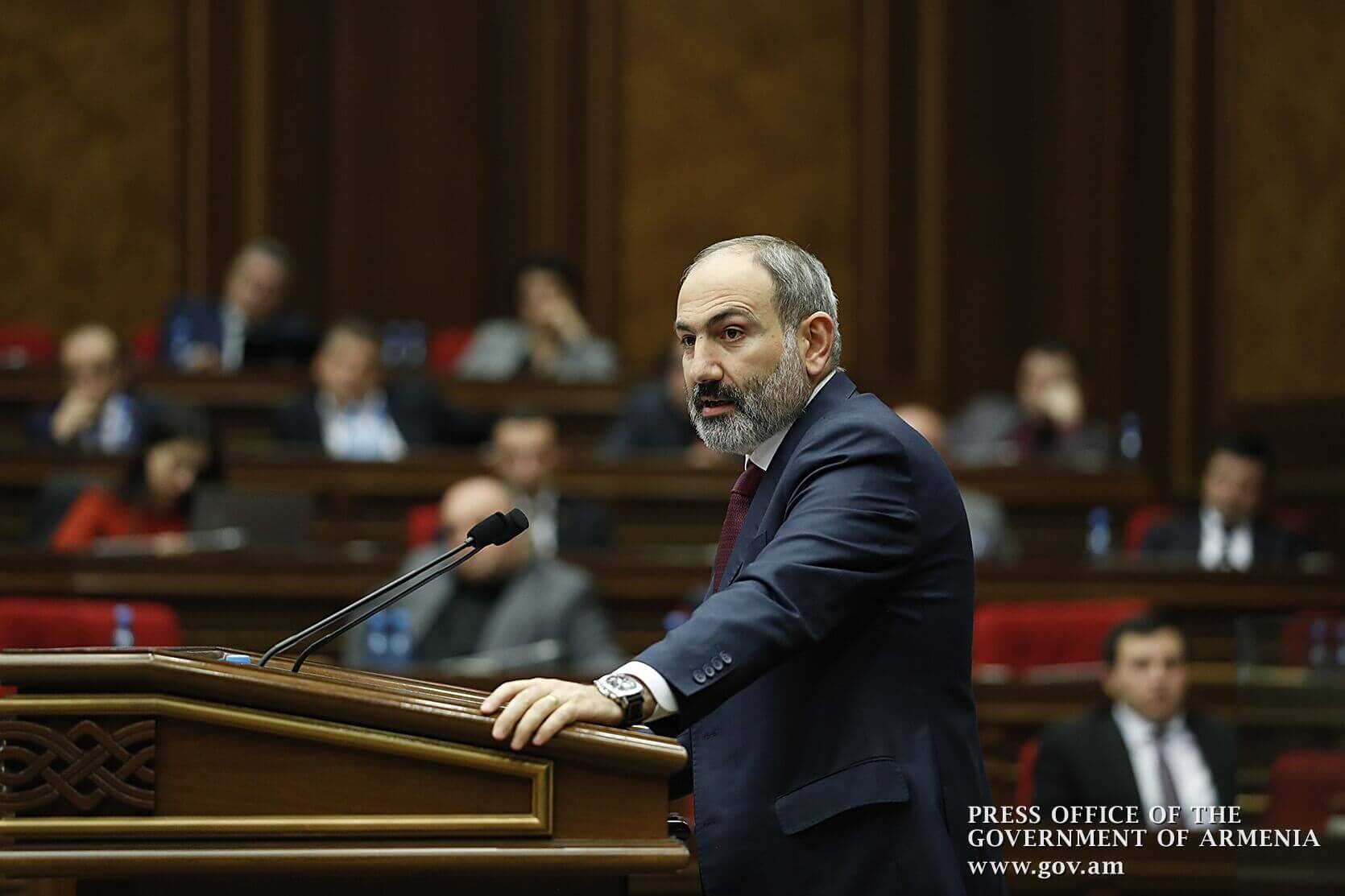Starting midnight today, the Constitutional amendments made by the National Assembly of Armenia will come into force. On Monday, the Assembly unanimously passed a bill which stipulates that judges who have served the Constitutional Court for more than a twelve-year term will be forced to resign. Additionally, new judges and the head of the Court need to be elected within the next two months.
According to a Facebook post by Prime Minister Nikol Pashinyan, the Chairman of the Constitutional Court, Hrayr Tovmasyan, and three more judges are no longer members of the Court.
Both opposition parties—Bright Armenia and Prosperous Armenia—boycotted the parliamentary meeting on 22 June; yet, the members of the ruling My Step party had enough representatives to unilaterally pass the legislation, with 89 votes in favour. A nationwide referendum to vote on the amendments was supposed to have been held on 5 April but was indefinitely postponed due to the coronavirus pandemic.
The current My Step government had come into power after the 2018 Velvet Revolution, and declared Constitutional Court judges from the previous government, particularly its Chairman, as incapable of delivering justice in a “post-revolutionary Armenia.” The opposition had rejected this notion and claimed that this approach did not have any legal ground to support it. The crisis over the amendments took a new form in June 2019, when the Pashinyan government appointed one of its allies as a judge to the Court in a bid to oust Tovamasyan “on a technicality”. The Venice Commission expressed its concern for the move and deemed it as “disturbing.”
In September 2019, the Court decreed the arrest of former President Robert Kocharyan as “unconstitutional”, adding further fuel to the fire against Tovmasyan, prompting security services to open up a criminal investigation against him in a bid to expedite his removal. Pashinyan even tried to propose a referendum to dissolve the Court in its entirety in February 2020, but the pandemic and ensuing lockdown forced him to delay it.
The Court was scheduled for a 7 July hearing to review the constitutionality of Kocharyan’s charges, but now that the Court faces a dearth of judges one does not know whether this will take place. On 19 June, the Venice Commission had offered its support to help solve the issue between the Assembly and the Court.
Benyamin Poghosyan, head of the Center for Political and Economic Strategic Studies in Yerevan, said that the government fears that the Court may rule against them, thereby explaining the hasty manner in which the amendments were adopted. “Perhaps Pashinyan was in a hurry to make these changes in the Constitutional Court and couldn’t wait another week to launch the process,” he told Eurasianet.
Image Source: Eurasianet
Armenia National Assembly Hastily Passes Constitutional Court Amendments
The vote was not attended by opposition party members.
June 26, 2020

